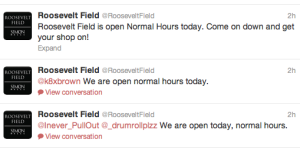Today we’re proud to begin the rollout of The Crisis Show Library on audio. It will consist of nearly all 100 episodes of The Crisis Show that began production in June 2012 and running through Spring 2015.
We are rolling out 20 of our favorite shows this weekend on a wide variety of topics: natural disasters/emergency management, social media crises, health crises, CEO leadership and workplace violence to name a few.
For the past three years, we’ve put much effort into making the show about crisis management education from many angles. And we’ve attracted some of the best minds in the business around the globe as guests — all who have given much of their time to deliver information viewers/listeners can use immediately. I thank them!
The show has mostly been broadcast live (with some pre-recorded the same day) to deliver up-to-date analysis of high profile crises: Newtown, CT school shooting, Superstorm Sandy, Australia brushfires, a Brazil nightclub tragedy, a horsemeat scandal that swept Europe, virus outbreaks on cruise ships, deadly tornadoes and earthquakes, the Boston Marathon bombing and major transportation disasters around the world.
We’ve covered CEOS, world leaders, college presidents and celebrities involved in recalls, scandals, crimes, natural/manmade disasters and reputation crises.
This Crisis Show was born on Google Hangouts on Air/YouTube and you can still watch the videos there. But having high resolution audio files that can be easily played in your car, tablets/iPads and mobile phones makes it more accessible than ever. (Note: My guitar hero Jimmy Page was NOT available to produce the audios but they still sound pretty darn good:))
Most episodes will cost $2.99 with a few at $3.99 because of their extra time/file size and additional guests. These include our special “Back to School” episodes and some “anniversary” editions that include mini All-Star teams of crisis management packed into extended shows.
If you ultimately purchased the entire library at say $299, that’s still cheaper than what you would pay today for a one or two hour webinar or seminar. So, in my humble opinion, every episode we make available is a fabulous value and costs less than most fancy coffees. Caffeine aside, this information WILL help you sleep at night because you will quickly gain confidence in your ability — and your staff’s ability — to manage a serious crisis that can ruin your organizations reputation.
We’re using a platform called Gumroad and hope you find it easy to use for purchasing and downloading your files from The Crisis Show Library. But if you have any issues with it, just email me: rich@richkleincrisis.com or TheCrisisShow@gmail.com. You can also DM me on Twitter via @RichKleinCrisis and @TheCrisisShow.
Thanks to everyone around the world who has watched and supported the show the past three years.
And thanks in advance to those ready to buy our audio episodes.
You will certainly learn much about what to do and say before, during and after a crisis to protect hard-earned reputation in front of your critical audiences.
PS…We don’t want to break the Internet by rolling out all episodes at once so please be patient as we spread these out over the coming week.


